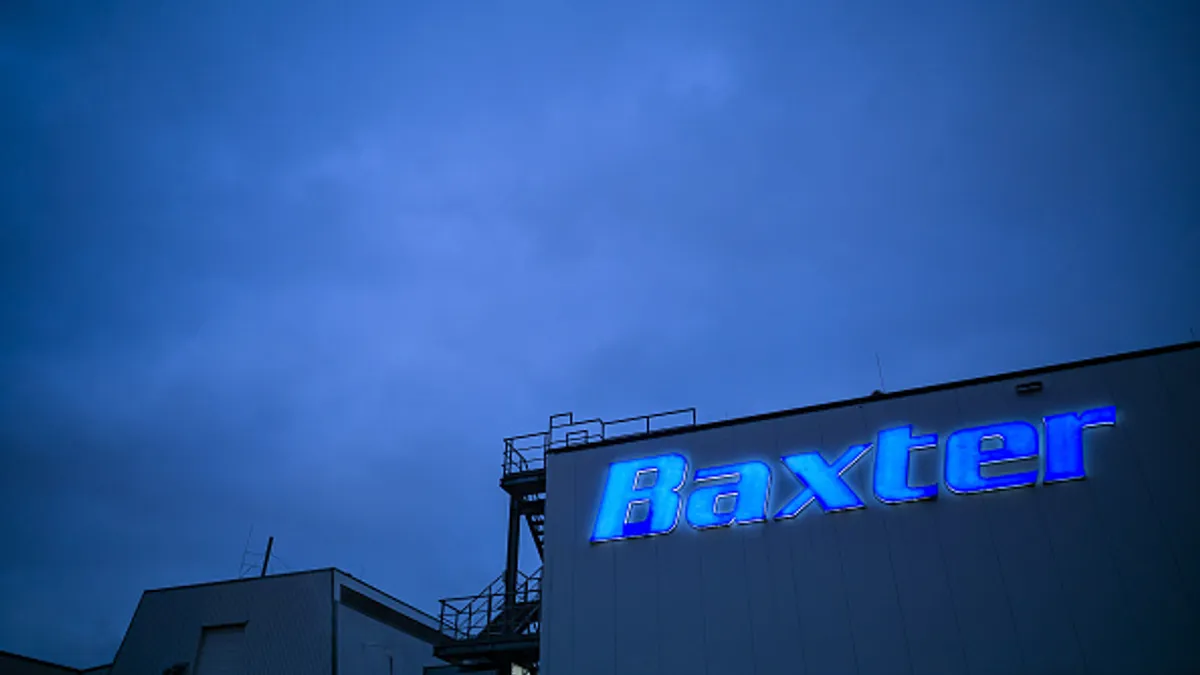Dive Brief:
- Baxter has contacted users of its Novum IQ large volume pump over a problem linked to 79 serious injuries and two deaths, the Food and Drug Administration said Tuesday.
- The FDA, which published an early alert about the issue, said Baxter wrote to customers last week to recommend actions to mitigate the risk of underinfusion, overinfusion and non-delivery of medications or fluids.
- Baxter asked customers to change the administration set or switch to another pump with a new administration set at the first safe opportunity.
Dive Insight:
Baxter received FDA clearance for its Novum IQ LVP in April 2024. The device is central to the company’s attempt to grow its share of the infusion pump market. Speaking at a Goldman Sachs event last month, Baxter CFO Joel Grade said the launch has gone really well and the product was performing strongly. Yet, the pump has had performance problems.
In June, the FDA published a recall notice after Baxter issued a correction letter for its Novum IQ LVP. The letter advised users on how to prevent underinfusion that could put infants at risk of dehydration, inadequate drug therapy, poor nutrition and insufficient blood infusion. That problem was linked to one serious injury.
The new problems are more widespread. Baxter said the pump can underinfuse when transitioning to a higher flow rate. Factors including how long the pump has been running and the size of the change in flow rate affect the level of underinfusion. In the worst case scenario, the infusion may stop completely.
Other customer reports have described cases of overinfusion and underinfusion that Baxter said were potentially caused by set misloading. Failure to properly load the tubing into the pump channel may cause infusion to exceed or fall short of the programmed rate.
The FDA said underinfusion, overinfusion and non-delivery can cause adverse effects ranging from minor or temporary harm to severe injuries. Potential adverse effects include cardiac arrhythmias, insufficient sedation, hyperglycemia and thromboembolic events.
Baxter has advised users to change the pump and infusion set at a time when a delay in treatment would not harm the patient. The company provided other recommendations to healthcare professionals who cannot change the pump without causing an unacceptable delay in infusion. The alert comes as Baxter works to increase its share of a market served by rival devices, including BD’s Alaris pumps.













